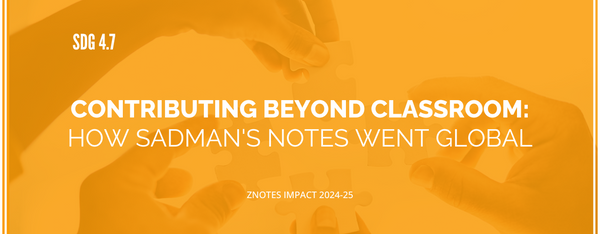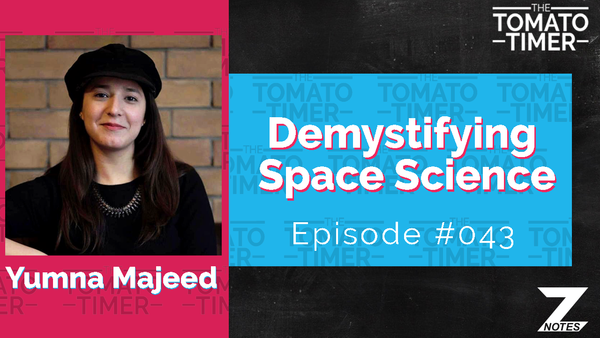TTT #53: "The 4th Industrial Revolution" with Alex Alexandrescu
In the wake of the 4th industrial revolution, students need to be empowered to be curious and adaptable. As skills we learn today might become obsolete and careers we envision non-existent, the way we think and learn could turn out to be the most relevant. How do we navigate through such an uncertain ecosystem? In episode 53 of the Tomato Timer, Alex Alexandrescu discusses this key question he has been tackling through his startup, Dicey Tech.
Dicey Tech seeks to make education more stimulating and impactful through hands-on projects aimed at solving real-world challenges. Today, it has reached schools across the United Kingdom, nurturing young minds for future innovation. But it didn't quite begin with a glamorously planned idea but was born after messy attempts following a fascinating desire: wanting to create a remote-controlled car.
While Alex was working on his dissertation at the University of Manchester, he was involved in a consultancy project for a tech start-up. Eventually, he came to realize the need for him to upgrade his technical skills. Alex interacted with various coding platforms, but none of them could captivate him. So, he experimented with a cheap DIY 3D printer to approach technology from a different perspective.
After some failures, Alex created a pyramid, and while the model was simple, what it led to wasn't. In some ways, it felt magical! He was fascinated by the idea of bringing things to life, knowing that he could create whatever he wanted to. So, became adamant about building his own remote-controlled car.
In less than a month, Alex had taught himself the basics of 3D designing, prototyping, coding, and the like. He came to terms with how engaging the process had been and how much he had come to learn. And he knew that such hands-on project-based learning was what the education system needed to prepare students in today's fast-paced world.
Alex believes that what we learn is far removed from what we need to thrive in the current work environment. Part of it, he says, has to do with the rapid advancements in technology. As educators equip themselves with the knowledge to communicate new ideas and innovations to students, the world might have already moved further, making that knowledge obsolete.
Education has always been the key to unlocking social prosperity. But the accelerating pace of innovation makes it difficult for busy educators to stay up to date with the needs of modern industry. We exist to bridge the gap by building exciting and relevant education that prepares learners to thrive in the future of work.
Further, Alex delves more into the reasons behind his proposal. Project-based learning adds a kinesthetic component to our learning-and the more senses we use, the better we can learn. It also makes us develop an algorithmic way of thinking-something with consequences in many spheres of life. For example, Alex talked about the rising political polarization. He mentions how so many people who seem to be vehemently opposed to each other are often saying similar things, but with different conclusions. The issue, he mentions, boils down to them not knowing how to communicate effectively or think critically about the other side.
Learning in a way that makes skills more applicable and contextual has the potential to help students adapt better to the world they inherit. Additionally, it leads to personal development and comes in handy in broad areas of life. And well, it also seems to be much more enjoyable!




